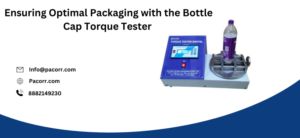In the digital age, blogging has emerged as a powerful platform for individuals to share their knowledge, experiences, and passions. For many, affiliate blogging offers an exciting opportunity to turn a hobby into a source of income. This article explores how to effectively monetize your passion for niche topics through affiliate marketing, guiding you through the essential steps to succeed in this rewarding endeavor.
Understanding Affiliate Marketing
Affiliate marketing is a performance-based marketing strategy where individuals (affiliates) earn commissions by promoting products or services offered by other companies. When a reader clicks on an affiliate link within a blog post and receives a percentage of the sale. This arrangement benefits both the affiliate, who earns money, and the company, which gains exposure and sales.
To succeed in affiliate blogging, it is crucial to understand the dynamics of this marketing model. Affiliates choose niche topics that align with their interests, allowing them to create authentic and engaging content. This authenticity is essential because it builds trust with readers, encouraging them to follow your recommendations. The key is to select a niche that you are passionate about and that has a viable audience.
Choosing Your Niche
Selecting the right niche is the foundation of a successful affiliate blog. A niche refers to a specific segment of the market that caters to a particular interest or need. The best niches often lie at the intersection of your passion and market demand. To find your niche, consider your interests, hobbies, and expertise. Ask yourself what topics excite you, what knowledge you possess, and where you can offer unique insights.
Conducting market research is essential to validate your niche choice. Use tools like Google Trends, social media platforms, and keyword research tools to assess the popularity and search volume of potential topics. Look for communities or forums related to your interests to gauge the level of engagement and demand. By choosing a niche with sufficient interest and competition, you can position yourself for success in the affiliate blogging space.
Creating Quality Content
Once you have selected your niche, the next step is to create high-quality content that resonates with your audience. Content is the backbone of any successful blog, and it should provide value to your readers while seamlessly incorporating affiliate links. Focus on crafting informative, engaging, and well-researched articles that address your audience’s needs and interests.
Consider different content formats to diversify your offerings. You can write blog posts, create videos, or produce podcasts, depending on your strengths and the preferences of your audience. For instance, if your niche is centered around cooking, sharing recipes through blog posts or cooking demonstrations on video platforms can be effective. The key is to maintain consistency in your content creation schedule to keep your audience engaged.
When incorporating affiliate links into your content, be transparent about your affiliations. Disclose that you may earn a commission if readers make a purchase through your links. This transparency builds trust with your audience and complies with Federal Trade Commission (FTC) regulations. Additionally, focus on promoting products that genuinely align with your niche and that you believe will benefit your readers.
Building an Audience
To monetize your blog effectively, you need to attract and retain an audience. Building an audience requires a combination of content marketing, social media engagement, and search engine optimization (SEO). Start by optimizing your blog for SEO, using relevant keywords to improve your search engine rankings. This helps increase organic traffic to your site, allowing more readers to discover your content.
Social media platforms play a crucial role in audience building. Share your blog posts on social media channels, engage with your followers, and participate in discussions related to your niche. Platforms like Instagram, Pinterest, and Twitter can help you reach a wider audience and drive traffic back to your blog. Collaborating with other bloggers or influencers in your niche can also expand your reach and introduce your content to new readers.
Email marketing is another powerful tool for building and maintaining an audience. Create an email list to capture the contact information of interested readers. Offer valuable incentives, such as exclusive content or free resources, to encourage sign-ups. Regularly communicate with your subscribers by sending newsletters that include your latest blog posts, affiliate promotions, and personalized recommendations.
Selecting Affiliate Programs
Choosing the right affiliate programs is a critical aspect of monetizing your blog. Not all affiliate programs are created equal, and selecting those that align with your niche and audience is essential. Start by researching companies that offer products or services relevant to your niche. Many businesses have affiliate programs, and some of the most popular include Amazon Associates, ShareASale, and CJ Affiliate.
When evaluating affiliate programs, consider factors such as commission rates, payment structures, and the reputation of the company. Higher commission rates may be enticing, but it’s important to assess the product quality and how well it aligns with your audience’s needs. Promoting low-quality products can damage your credibility and trust with readers, ultimately affecting your affiliate earnings.
Another option is to join affiliate networks, which aggregate multiple affiliate programs in one platform. These networks simplify the process of finding suitable affiliate opportunities and often provide resources to help you succeed. Explore the programs offered by these networks to find those that best suit your blog and audience.
Tracking Performance and Optimization
As you embark on your affiliate blogging journey, it’s vital to track your performance and optimize your strategies continually. Use analytics tools to monitor your website traffic, user behavior, and conversion rates. Google Analytics is a powerful tool that provides insights into how visitors interact with your site, allowing you to identify popular content and areas for improvement.
Analyze which affiliate links are generating the most clicks and conversions. This information can help you understand your audience’s preferences and adjust your content accordingly. If certain products or promotions resonate well with your readers, consider creating more content around those topics. Conversely, if some links are underperforming, evaluate whether they align with your audience’s interests and make necessary adjustments.
Experimenting with different content formats and promotional strategies can also enhance your results. A/B testing, where you compare two versions of a page or content to see which performs better, can provide valuable insights. By continually refining your approach based on data and feedback, you can optimize your affiliate marketing efforts for maximum profitability.
Staying Authentic and Building Trust
In the world of affiliate blogging, authenticity is paramount. Readers can quickly discern when a blogger is solely focused on making money rather than providing value. To build a loyal audience, prioritize authenticity in your content and interactions. Share personal stories, experiences, and insights that resonate with your audience. This genuine approach fosters a sense of connection and trust, making readers more likely to consider your recommendations.
Avoid promoting products or services simply for the sake of earning a commission. Instead, focus on recommending items that you genuinely believe will benefit your audience. Your credibility as a blogger hinges on the trust you’ve established with your readers. By maintaining transparency, providing value, and staying true to your niche, you can cultivate a loyal following that supports your affiliate marketing efforts.
Conclusion
Affiliate blogging presents a unique opportunity to turn your passion for niche topics into a profitable venture. By understanding affiliate marketing, choosing the right niche, creating quality content, and building an engaged audience, you can effectively monetize your blog. Selecting suitable affiliate programs, tracking your performance, and staying authentic are essential components of this journey. With dedication, creativity, and a commitment to providing value, you can transform your blog into a successful affiliate marketing platform, allowing you to earn income while doing what you love.


